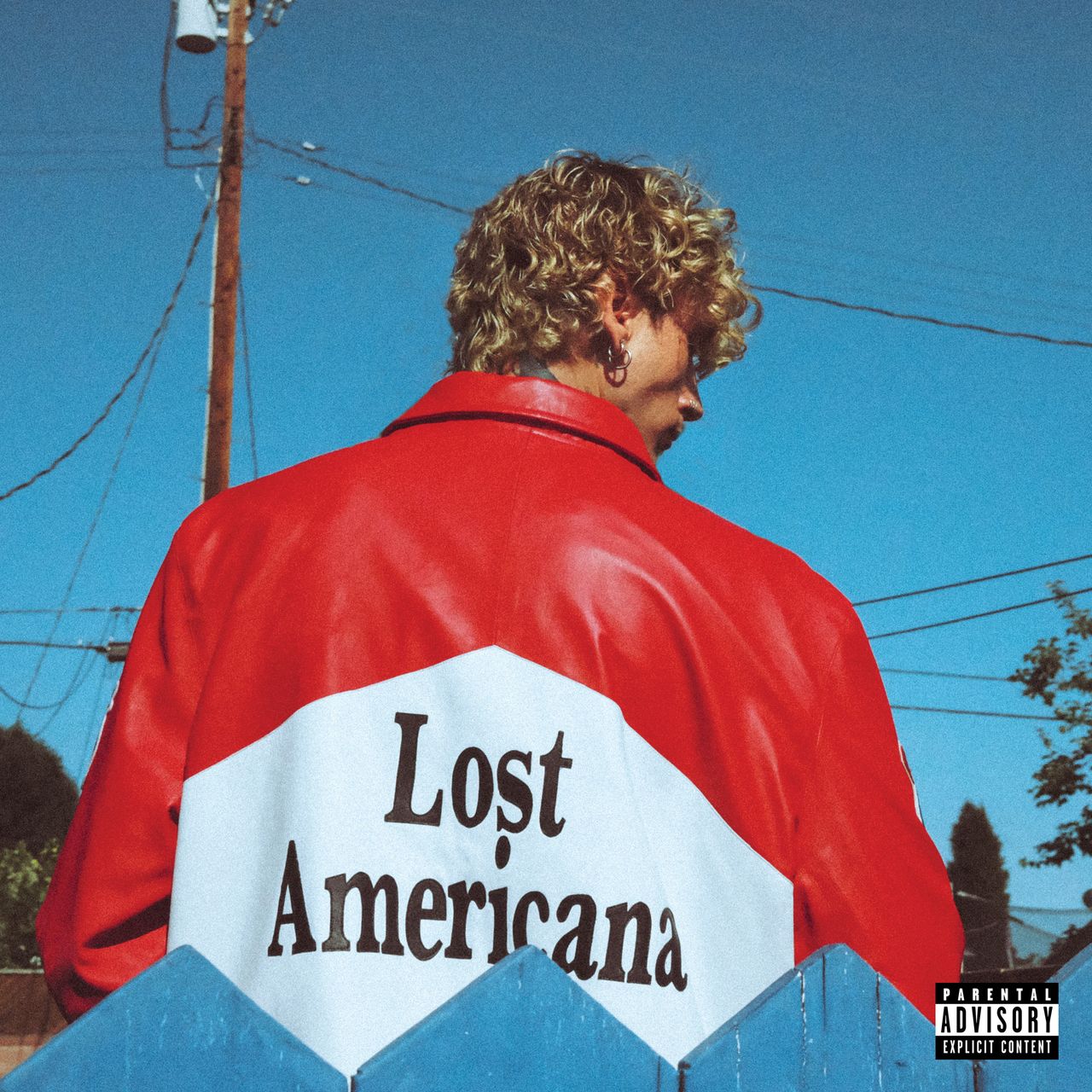lost americana starts with mgk nodding to the keys from the Who’s “Baba O’Riley,” and doesn’t let up from there. The lyrics of Guns N’ Roses, George Thorogood, Semisonic, the Black Crowes, and many more are invoked, sometimes obliquely but mostly just by name. “Semi-Charmed Life” is semi-covered, and the melodies from Goo Goo Dolls and Kate Bush songs are repurposed. He does to the Strokes’ “Last Nite” what it did to Tom Petty’s “American Girl,” and he calls it “Sweet Coraline” because that is a title that allows him to make not one but two other references. Its lead single, “cliché,” is spiritually a zillennial take on the conceit of Alanis Morissette’s “Ironic,” but sonically, it is a stab at grafting a hyperpop sheen onto John Cougar Mellencamp.
This is no doubt a deeply cursed record, a Hold Steady album that instead of referencing Youth of Today aspires to educate today’s youth about the existence of Alice Deejay’s “Better Off Alone.” But while lost americana isn’t good, per se, there’s something about mgk’s dedication to the bit, his quality-agnostic enthusiasm for the idea of popular rock music as a form, and the brutal honesty he embeds within its nonsense that makes it genuinely fascinating to listen to, and at times even successful when you take it on its own terms. It’s mgk trying to take on the great modern rock songbook while also going into painstaking and sometimes excruciating detail about how he fucked up his life last year. Who else would even think to make that swing?
mgk, real name Colson Baker, made this album after what can be lightly described as a rough patch. In November 2024, he and his partner, Megan Fox, announced they were expecting their first child together and then broke up two weeks later, allegedly due to Baker’s infidelity. Shortly after that, he relapsed after more than a year of sobriety and wound up in rehab, only to emerge to discover that the Los Angeles wildfires had destroyed his preferred studio.
So, as Baker tells it, he hunkered down with his touring band in his living room and self-produced a record that both aims for the big-tent pop-rock canon and near-Maoist levels of self-criticism. He announced the album with a trailer narrated by Bob Dylan of all people, which, despite his well-documented love of doing extremely random shit, was so out of left field that one would be forgiven for initially believing it was AI. It turned out to be very real, and came as a result of Dylan posting an old video of mgk freestyling on his Instagram, which seemed to mystify even Baker himself before he gathered the good sense to reach out to link and build with the Bard himself.
